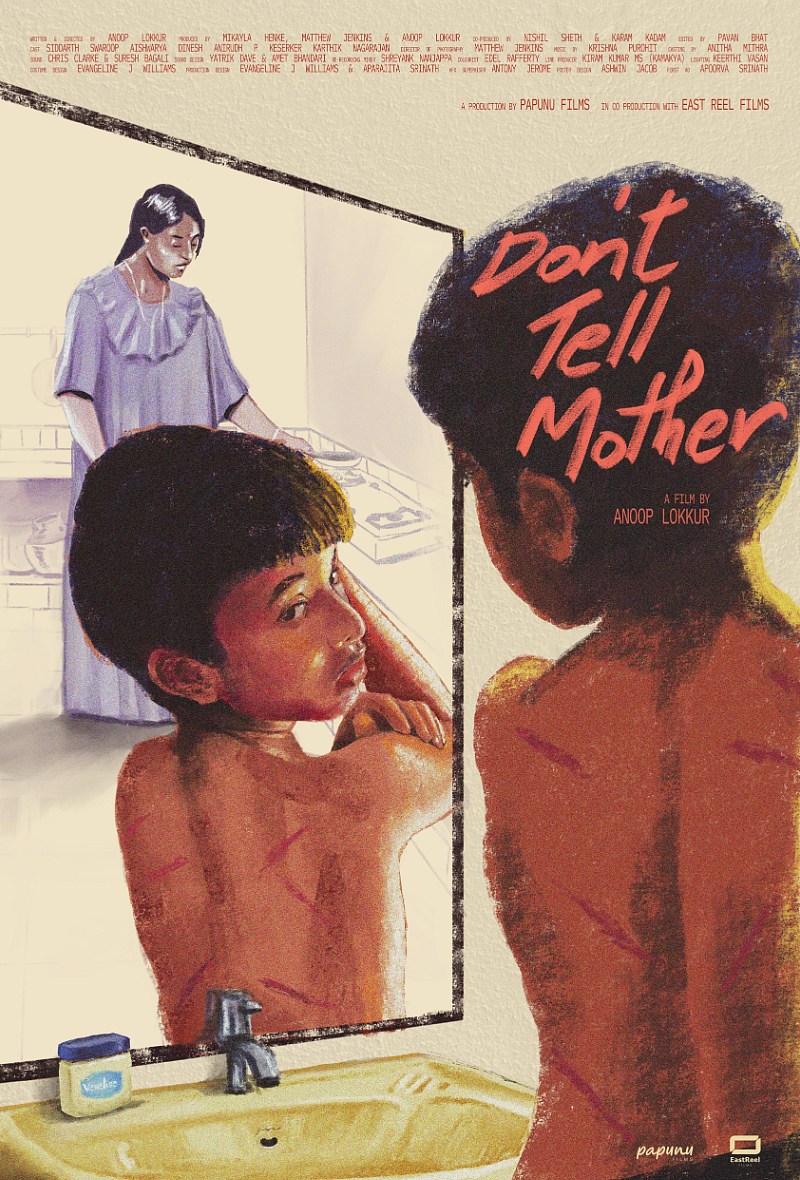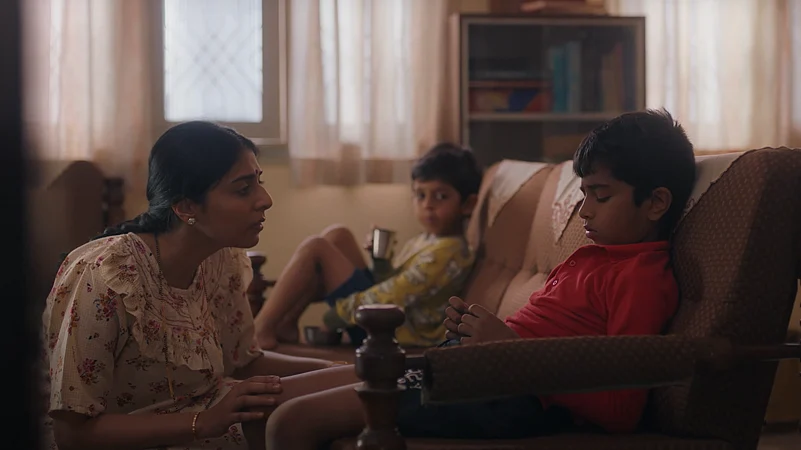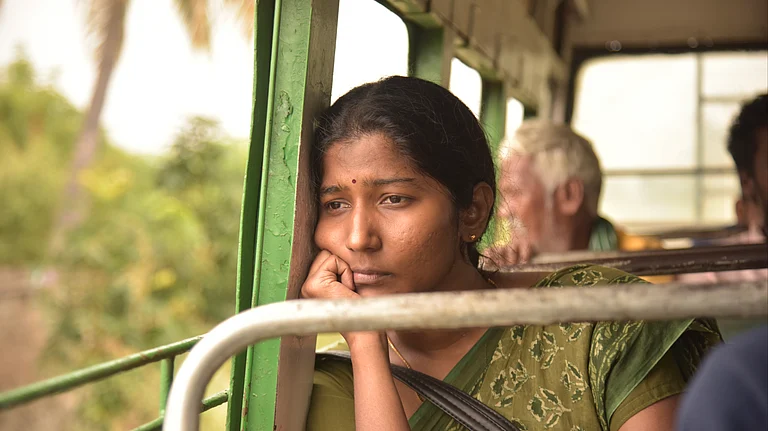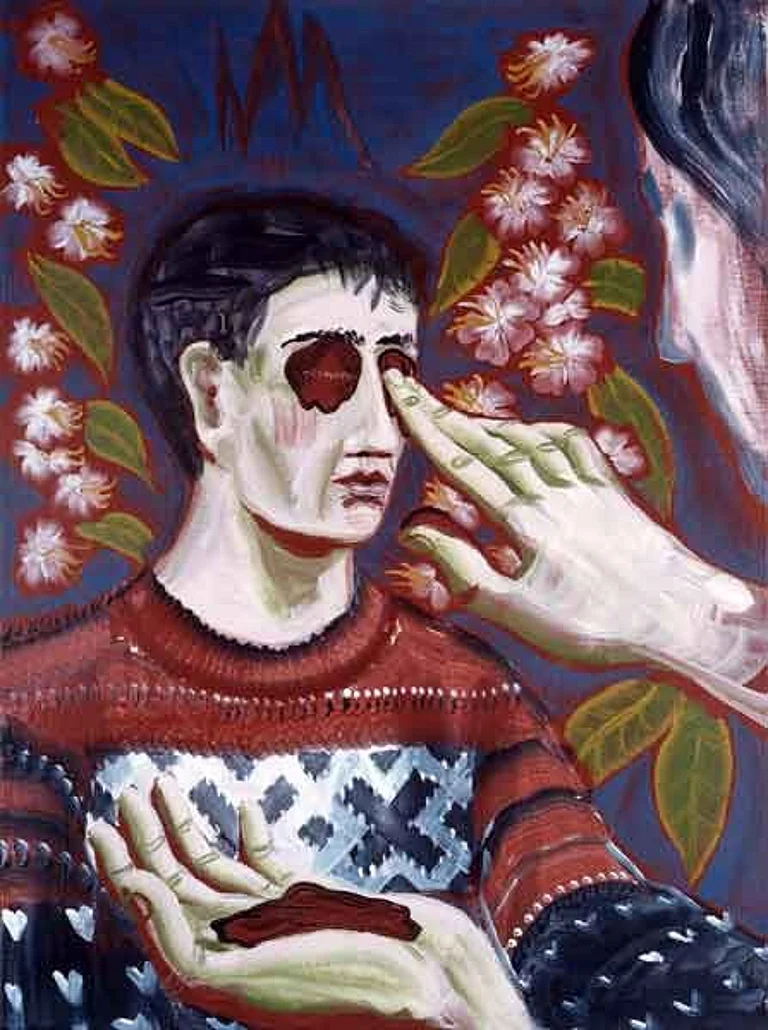
Don't Tell Mother is Anoop Lokkur's debut feature.
It premiered in the 'Windows to Asian Cinema' section at the 30th Busan International Film Festival.
It is premised on how children learn to navigate structures of discipline and violence long before they fully grasp their meaning.
Anoop Lokkur’s debut feature Don’t Tell Mother, premiering in the 'Windows to Asian Cinema' section at the 30th Busan International Film Festival, carries a tender but potent dose of nostalgia. Shot in sepia-tinged tones that feel both hazy and tactile, the film is set in 1990 in the Bengaluru of Lokkur’s childhood with such warmth and intimacy that watching it feels like stepping into a time capsule. The memories here are not reconstructed as much as they are infused with the contradictions of love and control that form the emotional inheritance of families.
The film begins in medias res, with a nine-year-old Akaash (Siddharth Swaroop) who has just been punished by his math teacher. His eyes, brimming with tears, wander to the open window where monkeys play with carefree abandon—a striking metaphor for a child bound by arbitrary rules, while the natural world follows none. In this single opening beat, Lokkur establishes his preoccupation: how children learn to navigate structures of discipline and violence long before they fully grasp their meaning.

Akaash lives with his younger brother Adi (Anirudh P. Keserker) and their parents, credited as Amma and Appa in the film (portrayed by Aishwarya Dinesh and Karthik Nagarajan). The family has recently broken away from the joint household, a bold move in the cultural landscape of the 1990s. Predictably, blame is placed on the mother for this perceived rupture. But the patriarch’s hold is far from broken. Akaash’s father continues to work in his grandfather’s brokerage firm, and the question of whether his Amma can start a catering business with a friend is deferred to the patriarch’s permission. These moments of gendered negotiation are staged with deceptive simplicity: firm refusals, quiet frustrations leading to uncontrollable outbursts, and the invisible labour of women that passes without gratitude.
We view the world in Don’t Tell Mother mostly from Akaash’s point of view, but Dinesh’s Amma is the film’s other focus. Her Sisyphean routines of cooking, cleaning, and caregiving are rendered with painterly patience. Lokkur resists melodrama. Instead, the camera lingers on the repetition of everyday chores, granting dignity to what is usually taken for granted. Her muted rage will resonate with generations of women who have been told their aspirations end at the kitchen door.

The film’s emotional stakes crystallise in the classroom. Akaash’s math teacher becomes a cruel tormentor, which Lokkur juxtaposes with a Muharram procession outside the school—a startling collision of ritualised pain and institutionalised violence. Akaash hides his welts from his mother, who herself has occasionally disciplined him much more gently with a ruler. The gesture, small in comparison, nevertheless normalises the cycle. When Akaash later strikes Adi for a homework mistake, the inheritance of violence becomes clearer.
This culminates in one of the film’s most harrowing sequences—a near-tragedy that shocks Akaash into recognition. In the aftermath, he promises his brother he will never hit him again. This is the kind of moral epiphany Lokkur is interested in—not an overtly sentimental breakthrough, but a small act of unlearning, the kind of emotional labour that breaks chains forged across generations.
For an audience member of Lokkur’s generation—millennials who grew up in the 1990s—the film will have a particularly sharp pull. It is concocted with collages of memories that are very specific, from holidays spent with cousins to spending hours stationed in front of the television after school. But it is how he treats these memories that makes Don’t Tell Mother stand apart.
The Mysuru family trip, with cousins piled into their ancestral home, feels blissful, even intoxicating in its simplicity. Yet, Lokkur resists packaging nostalgia as aesthetically aspirational. The lived-in textures are not escapes into a lost innocence but reminders that what we remember fondly was always more complicated. While the men and children spend hours at play, the women of the house toil away in the kitchens. The gender and power structures are always there and the children are party to it all.
This balance—between tenderness and critique, longing and clarity—is what makes Don’t Tell Mother so affecting. Lokkur doesn’t use his childhood memories to create feel-good vignettes. Instead, he paints them with nuance: the joy of brotherhood shadowed by guilt, the warmth of a mother edged with fatigue, the rituals of an upper caste Hindu family stitched with patriarchal control.
The casting is also pitch-perfect. Swaroop’s Akaash is heartbreaking in his quiet watchfulness. He carries the film’s emotional weight with natural ease. Keserker as Adi is irrepressibly adorable, his innocence a foil to Akaash’s burdened coming-of-age gaze. Dinesh imbues Amma with dignity and unspoken longing, while Nagarajan’s Appa is a man caught between filial duty and spousal love and loyalty.
Cinematographer Matthew Jenkins bathes the film in warm, soft light that renders ordinary spaces like the classroom, kitchens, and backyards as if they were charged with memory. Editor Pavan Bhat maintains a rhythm, letting domestic silences breathe without dragging the narrative. Together, they recreate memories on screen: some of which are quiet and some elliptical.
The film closes on a beautifully understated note. Adi, still shaken, acknowledges his newfound fear of cashews to Akaash. The secret, like the bruises Akaash once hid, becomes a bond between brothers. In a quiet gesture of gratitude, Akaash thanks his mother for the tiffin she prepares. After the cycles of discipline and silence, these simple acts of acknowledgment feel like a shift in the right direction. It suggests that love, too, can be inherited; not just fear, anger, and patriarchal shackles that tell young boys to bottle up their tears or become perpetrators of the same cruelties they witnessed or endured.
Don’t Tell Mother is a remarkable debut, one that transforms personal memory into something very potent. Lokkur captures the contradictions of family life—the love that nurtures and the violence it quietly excuses—with rare honesty. For a generation looking back at the 1990s with rose-tinted nostalgia, the film offers a necessary reminder: things were never as simple as we remember.
It is easy to want to package nostalgia; it is far harder to execute it without becoming derivative. Lokkur does so with tremendous heart. Don’t Tell Mother is both a love letter to childhood and an unflinching look at its shadows.
Debiparna Chakraborty is a film, TV, and culture critic dissecting media at the intersection of gender, politics, and power.































